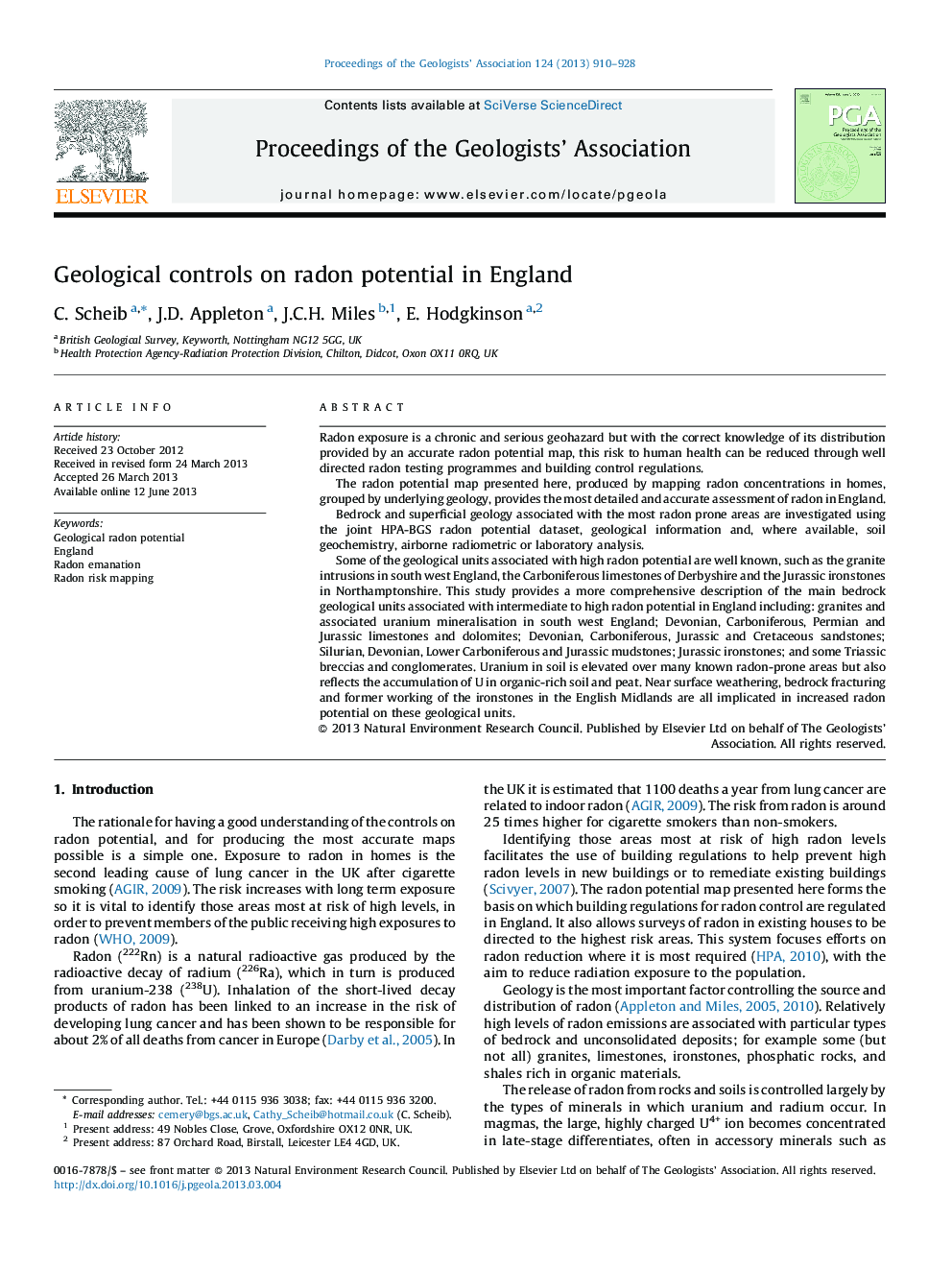| Article ID | Journal | Published Year | Pages | File Type |
|---|---|---|---|---|
| 4734679 | Proceedings of the Geologists' Association | 2013 | 19 Pages |
Abstract
Some of the geological units associated with high radon potential are well known, such as the granite intrusions in south west England, the Carboniferous limestones of Derbyshire and the Jurassic ironstones in Northamptonshire. This study provides a more comprehensive description of the main bedrock geological units associated with intermediate to high radon potential in England including: granites and associated uranium mineralisation in south west England; Devonian, Carboniferous, Permian and Jurassic limestones and dolomites; Devonian, Carboniferous, Jurassic and Cretaceous sandstones; Silurian, Devonian, Lower Carboniferous and Jurassic mudstones; Jurassic ironstones; and some Triassic breccias and conglomerates. Uranium in soil is elevated over many known radon-prone areas but also reflects the accumulation of U in organic-rich soil and peat. Near surface weathering, bedrock fracturing and former working of the ironstones in the English Midlands are all implicated in increased radon potential on these geological units.
Keywords
Related Topics
Physical Sciences and Engineering
Earth and Planetary Sciences
Geology
Authors
C. Scheib, J.D. Appleton, J.C.H. Miles, E. Hodgkinson,
